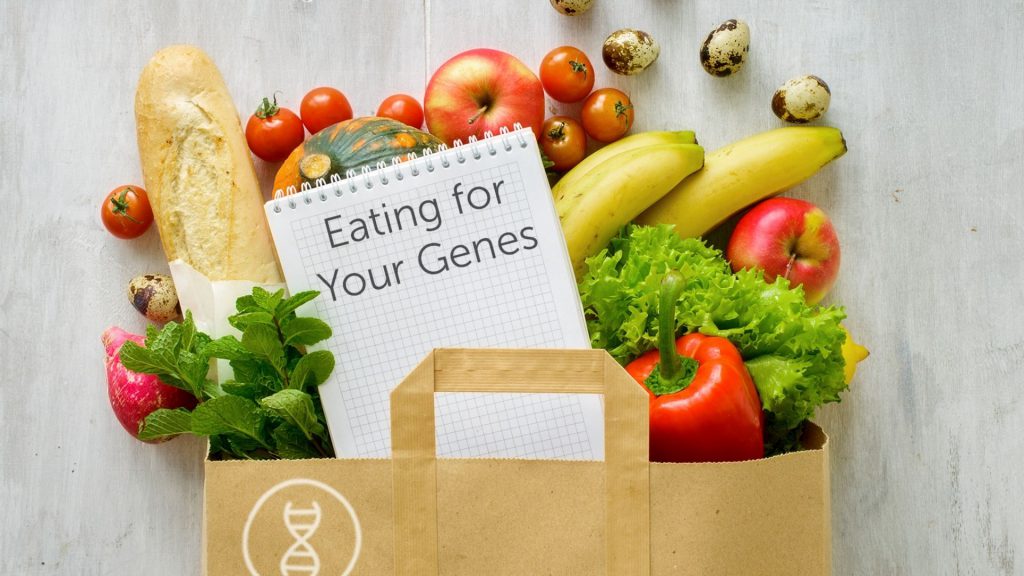Eat for Your Genes - Dr. Dalton-Smith - I Choose My Best Life
Just like the pattern in our fingerprints, our nutritional needs are unique to each and every person. When it comes to how we fuel our bodies, we now know that general nutrition guidelines, the latest supplement trends and fad diets simply don’t work.
The key to feeling well and staying healthy is to know what to eat. This formula is contained in our DNA.

Your DNA can help you make smarter food choices
GenoPalate’s nutrition DNA test is just like the one you’d take to research your ancestry. Once you’ve submitted your DNA test kit or existing test results to us, your DNA is analyzed to determine how your body processes food.
Based on your DNA results, we’ll create a customized nutrition profile for you. Your profile will include a detailed breakdown of each nutrient including how much you need and the best sources for you.
You’ll find out how your body processes carbohydrates, fiber, sugar, fats, protein, vitamins and minerals. Your profile will also alert you to a potential sensitivity to lactose or gluten and analyze how you process caffeine and alcohol.
The science behind a DNA-based diet
GenoPalate’s testing uses nutritional genomics, also known as nutrigenomics. This is the study of the relationship between the human genome, nutrition and health. We use this whole-body science to determine what you should eat based on how your body will respond.
Let’s take this science lesson a bit further.
DNA is the genetic material that carries the information that determines how your body looks and functions. Your genes are specific regions of your DNA that provide your body with instructions on how to make proteins. These instructions affect the function of your body’s tissues and organs.
These instructions come from specific locations on your genes called genetic variants, or single nucleotide polymorphisms. Variants are distinguished by a difference in a single nucleotide (A, C, T and G). These nucleotides are the building blocks of DNA.
GenoPalate analyzes 100+ genetic variants that directly impact how your body processes food. You’ll learn about your associated genotype (your unique set of nucleotides that determine your nutrition recommendations). You’ll also learn the prevalence of your genotype (the percentage of the population that also has your genotype) for each gene.
This analysis of your genes will provide you with a roadmap for the foods and nutrients you should be consuming for optimal health.
For example, you might have been born with a predisposition to be vitamin D deficient. Your spouse might have been born with a higher ability to break down caffeine. Your best friend might have been born with a lower ability to efficiently process protein.
Here’s a more detailed example.
Jim and Amber are married. Because they are genetically unrelated, with unique genetic makeups, they have different nutrient needs.
From Jim’s genetic results we are able to determine that his genotype has a higher demand for omega-3 fatty acids, a lower demand for carbohydrates and sugar, and a moderate demand for fiber.
Based on Amber’s genotype, we are able to determine that she may thrive on moderate amounts of omega-3 fatty acids, carbohydrates and sugar, and higher amounts of fiber.
These differences in their nutritional needs makes certain foods better for Jim, with other foods better for Amber.
For example, we’ve been told that eating vegetables is beneficial to our health. This is true, but WHAT vegetables are best for YOU? Based on Jim’s nutrition test, we can see that soybean sprouts have a nutrition profile that’s more compatible with his genes. In comparison, green beans have a nutrition profile that’s more compatible with Amber’s genes.
Ready to Discover the Best Foods for Your Body Based on Your DNA? VISIT GENOPLATE
(Visited 22 times, 21 visits today)




